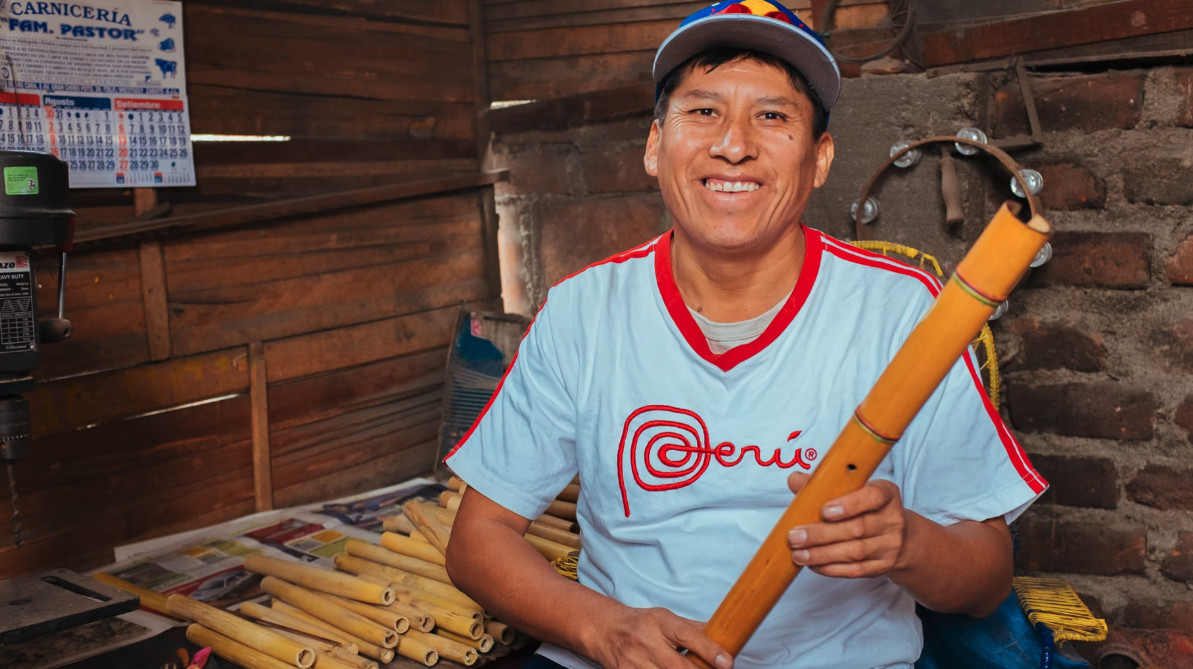October is Fair Trade month, and it is worth celebrating!
Fair trade is about empowering the producers making the goods we use every day. Artisans in a fair trade supply chain are paid a livable wage, and they have access to better job opportunities and a well remunerated income. In addition, working conditions and a healthy environment are important to Fair Trade standards. Finally, a sustainable continuous source of income must be established with the artisans to secure a steady income to create financial stability.
Here’s what you’re supporting when you buy fair trade.
We invest in jobs for women living in challenging socioeconomic conditions, build marketable skills, start small businesses, and secure fair wages and ethical work. When women have the power to make their own money and have control over how they use it, this not only empowers them economically, but is also one of the best ways to help reduce global poverty.
We strive to help ensure both craft preservation and job creation. The artisans we work with set their own wages, and we are committed to following fair trade practices in all aspects of our business. Each handmade piece is the result of a careful production process, and we hope that you can see and feel the difference.
Sanyork Fair Trade allows access to markets, business skills and tools needed to grow.
Two terms that often get confused are "fair trade" and "free trade". While Fair Trade and Free Trade sound similar, they are polar opposites. There’s much more accountability and transparency when it comes to products that are made in a "Fair Trade" setting than traditional factories and sweatshops.
Here are some of the key differences between "Fair Trade" versus "Free Trade":
1. WAGES
With fair trade products, the people who make them are fairly paid adults. Artisan partners are typically paid half of the invoice upfront which allows them to buy the materials they need. We pay our artisans at least 2-3 times the minimum wage in their country. Artisans receive health insurance, retirement contributions and education stipends.
In traditional factory and sweatshop settings, workers are paid dramatically less than a livable wage, often pennies an hour and they often work 12+ hours per day without breaks and often employ children. In free trade zones, factories can ignore the legal minimum wages, so brands compete to pay the lowest price.
2. WORKING CONDITIONS
In a fair trade setting, the working conditions keep people safe. In the US, we take it for granted that organizations like OSHA create standards for safe working environments. We provide well lit and ventilated areas, safe enclosed workstations and break rooms with clean bathrooms. Many artisans can work remotely from their homes and bring the finished work to our workshop. Traditional factories and sweatshops are notorious for being dark, dust-filled and dangerous.
3. WOMEN'S RIGHTS
Fair trade products are often made by women because providing opportunities to women is a key principle of fair trade. Fair trade organizations often provide more flexibility so that women are able to juggle childcare and housework. Many of the artisans who make our products can work from home and take care of their families. They have giant looms in their homes so that they’re able to weave scarves in between all of their other duties.
4. ENVIRONMENT
Respect for the environment is another way that fair trade products differ from products made in traditional factories or sweatshops. About 90% of the materials that our artisan partners use are natural, recycled or upcycled, meaning the piece is from a natural source or given a new life. Our artisan partners work with raw materials that are available in the country. In traditional factories, it’s all about making things cheap and quickly, so tons of material is wasted, and either sits as “dead stock” in warehouses or landfills, or is burned.
5. JOB STABILITY
Creating reliable, long-term trade agreements with artisan partners is another area that sets fair trade workshops apart from sweatshops. We provide consistent orders with our artisan partners so that they always have work. Traditional factory workers can be let go with no notice, so they are always fearing for the stability of their job.
Join us as we respect cultural traditions, build work relationships of mutual respect, allow continuity of work orders, support fair trade values and pay fair market value for handmade goods. Every time you make a purchase from Sanyork Fair Trade, you're sustaining safe, living-wage jobs that help support artisan families.
-Michel Kessler
@ Sanyork Fair Trade
Recent Posts
-
Meet WIRA: The First Baby Alpaca Sneakers Inspired by Pre-Columbian Cultures
We’re excited to introduce WIRA, our newest brand partner — and the first of its kind.&n …14th Jul 2025 -
Elevate Outdoor Merchandising with Fair Trade Garden Urns Made from Recycled Aluminum
Retailers, designers, and garden centers looking to level up their outdoor decor lineup are in for a …11th Jul 2025 -
Bring Mythical Majesty to Your Garden with a Griffin Statue
Enhance your garden's ambiance with a beautifully crafted griffin statue, combining mythological sym …7th Jul 2025




